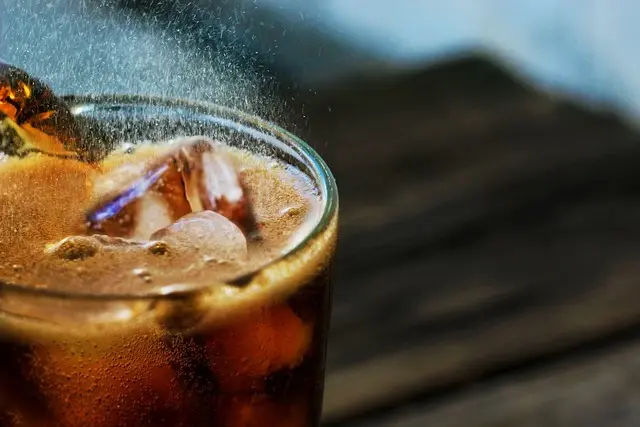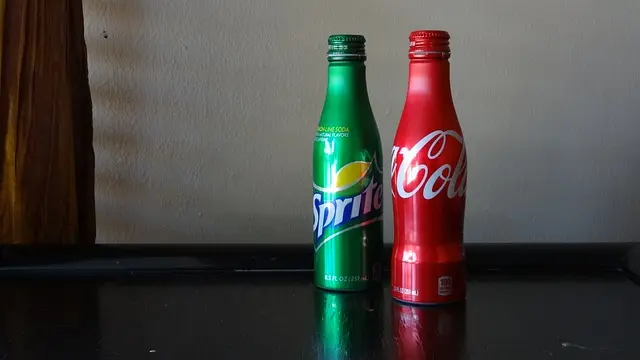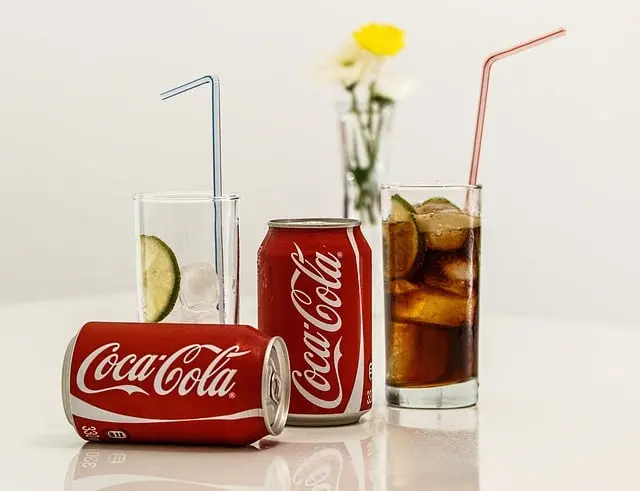Carbonated water has gained popularity as a healthier alternative to sugary sodas, providing the same bubbly experience without the added calories. Yet, many ask the question: “Is carbonated water bad for your teeth?” The answer is not entirely straightforward.
While plain carbonated water is generally less harmful than other acidic or sugary beverages, its effect on dental health depends on factors like its acidity, how often it’s consumed, and overall oral hygiene practices.
In this article, we’ll take a closer look at how carbonated water interacts with your teeth and how to enjoy it without compromising your dental health.
Table of Contents
- What Is Carbonated Water?
- Types of Carbonated Water
- How Does Acidity Affect Teeth?
- Is Carbonated Water Bad for Your Teeth?
- Tips to Protect Your Teeth While Drinking Carbonated Water
- Common Myths About Carbonated Water and Teeth
- When to Avoid Carbonated Water
- Conclusion
- FAQs
What Is Carbonated Water?
Carbonated water, known as sparkling water or soda water, is water infused with carbon dioxide gas under pressure. This process creates bubbles, giving it its signature fizz. While plain carbonated water is free of sugar and calories, flavored versions may contain sweeteners or additives.
The key concern about carbonated is carbonated water bad for your teeth lies in its acidity. When carbon dioxide dissolves in water, it forms carbonic acid, which slightly lowers the pH, making the drink mildly acidic. While not as acidic as sodas or fruit juices, this acidity raises questions about its potential to erode tooth enamel.
Types of Carbonated Water

Plain Sparkling Water
Plain sparkling water consists of carbon dioxide infused into water, creating its signature fizz. It is free of sugar, calories, and additives, making it the healthiest choice among carbonated beverages. With a slightly acidic pH, it is safe for most people in moderation. It’s an excellent alternative to sugary sodas and other acidic drinks. This type of water is ideal for those who prefer a simple, refreshing beverage.
Flavored Sparkling Water
Flavored sparkling water contains natural or artificial flavors added for taste. While some are calorie-free, others may include added sugars or sweeteners. The acidity and additives in flavored versions can increase the risk of tooth enamel erosion. Always check the label to avoid varieties with harmful ingredients. This option is popular for those who prefer a hint of flavor without the calories of soda.
Club Soda
Club soda is carbonated water with added minerals like sodium bicarbonate or potassium sulfate. Though generally safe for teeth, the added minerals may slightly alter its pH. It’s commonly used in cocktails or as a standalone fizzy drink.
Tonic Water
Tonic water contains carbon dioxide, water, and quinine, often combined with sugar or sweeteners. It is more calorie-dense due to its sugar content, making it less ideal for dental health.
While it’s commonly used in mixed drinks, the high sugar levels can contribute to tooth decay if consumed frequently. It’s a flavorful but less tooth-friendly option among carbonated waters.
Seltzer Water
Seltzer water is plain water infused with carbon dioxide, similar to sparkling water but without added minerals. It is crisp, refreshing, and free of calories or sweeteners. Its neutral taste makes it a versatile choice for drinking plain or mixing with other beverages. Seltzer water is a great choice for those seeking a clean, fizzy drink without any additives.
How Does Acidity Affect Teeth?
Acidity plays a significant role in the health of your teeth, as acidic substances can weaken and erode enamel over time. Enamel is the hard, outer layer that protects your teeth from decay and damage.
When exposed to acidic drinks or foods, the enamel begins to soften and lose essential minerals, making it more vulnerable to wear. This process, known as enamel erosion, can lead to increased tooth sensitivity, discoloration, and a higher risk of cavities.
The pH level of a substance determines its acidity, with lower values indicating higher acidity. Tooth enamel starts to dissolve at a pH of 5.5 or lower. While plain carbonated water typically has a pH between 3 and 4, its impact on enamel is milder compared to sodas or citrus juices.
However, frequent or prolonged exposure to acidic beverages can still contribute to enamel erosion, especially if proper oral hygiene is not maintained. To minimize the effects of acidity, it’s important to rinse with water after consuming acidic drinks and maintain a good dental care routine.
Is Carbonated Water Bad for Your Teeth?

Plain carbonated water is not inherently bad for your teeth, but its impact depends on how frequently and how much you consume. The mild acidity from carbonic acid in sparkling water is far less harmful than the acidity in sugary sodas or fruit juices. Since it lacks sugar, plain carbonated water does not contribute to tooth decay, making it a safer alternative to many other fizzy beverages.
However, flavored carbonated waters or those with added sugars and citric acid can pose a greater risk to dental health. These additives increase acidity, potentially leading to enamel erosion if consumed excessively.
Drinking carbonated water in moderation, choosing plain options, and maintaining good oral hygiene can significantly reduce any potential risks. By being mindful of your choices, carbonated water can be a refreshing, tooth-friendly beverage.
Tips to Protect Your Teeth While Drinking Carbonated Water
- Choose sparkling water without added sugars, flavors to reduce the risk of tooth enamel erosion.
Limit your consumption of carbonated water to avoid prolonged exposure to acidity.
Drinking through a straw minimizes contact between the acidic water and your teeth, protecting your enamel.
Consume carbonated water with food to help neutralize acidity and reduce its impact on your teeth.
After drinking carbonated water, rinse your mouth with plain still water to wash away acid and maintain a neutral pH.
Sip and swallow instead of swishing carbonated water around your mouth to limit enamel exposure.
Brush twice a day with fluoride toothpaste, floss daily, and visit your dentist regularly to keep your teeth strong and healthy.
After drinking carbonated water, wait at least 30 minutes before brushing to avoid damaging softened enamel.
Carbonated Water vs. Other Beverages
| Beverage | Acidity (pH) | Contains Sugar? | Risk to Teeth |
| Plain Carbonated Water | 3-4 | No | Low |
| Flavored Sparkling Water | 3-4 | Sometimes | Moderate (with sweeteners) |
| Soda | 2.5-3.5 | Yes | High |
| Fruit Juices | 3-4 | Yes | High |
| Still Water | 7 | No | None |
Common Myths About Carbonated Water and Teeth
There are several misconceptions about carbonated water and its impact on dental health. One common myth is that carbonated water is as harmful as soda. This is untrue, as plain carbonated water lacks sugar, the primary culprit in tooth decay, and its acidity is much milder than that of sugary sodas.
Another myth is that carbonation alone damages teeth. In reality, it’s the pH level and the presence of harmful additives like sugar or citric acid in some flavored varieties that pose a risk, not the carbonation itself.
Some also believe all carbonated drinks have the same effect on teeth, but plain sparkling water is significantly less damaging than flavored or sugary options. Understanding these myths can help people make informed choices and enjoy carbonated water without unnecessary concerns.
When to Avoid Carbonated Water
Carbonated water should be avoided in certain situations to protect your dental health and overall well-being. If you have weakened enamel, tooth sensitivity, or a history of dental erosion, it’s best to limit or avoid carbonated water, as its mild acidity can exacerbate these issues.
Additionally, flavored or sweetened carbonated waters with added sugars or citric acid can increase the risk of enamel erosion and tooth decay, making plain water a better choice. Frequent sipping of carbonated water throughout the day should also be avoided, as it prolongs exposure to acidity.
For individuals with digestive conditions like acid reflux, carbonated water might worsen symptoms due to its gas content. If you have any concerns about its impact, consult your dentist or healthcare provider for personalized advice.
Conclusion
So, is carbonated water bad for your teeth? Plain carbonated water is a much safer alternative to sugary sodas and juices, with minimal risk to dental health when consumed in moderation. Its mild acidity is unlikely to cause significant enamel erosion if you follow good oral hygiene practices and limit prolonged exposure.
However, flavored sparkling waters or excessive consumption may increase the risk of enamel damage. By making informed choices and taking preventive steps, you can enjoy the fizz of carbonated water without compromising your smile.
FAQs
Is plain carbonated water bad for your teeth?
Plain carbonated water is not significantly harmful to teeth when consumed in moderation. While it is mildly acidic, it lacks sugar, which reduces the risk of cavities and enamel damage compared to sugary drinks.
Does drinking carbonated water cause tooth decay?
No, plain carbonated water does not directly cause tooth decay since it does not contain sugar. However, flavored versions with added sugars or acids may increase the risk of tooth decay and should be consumed sparingly.
Can carbonated water erode enamel?
The mild acidity in plain carbonated water can contribute to enamel erosion if consumed excessively or frequently. However, its impact is minimal compared to sodas or citrus juices. Drinking it with meals and practicing good oral hygiene can help protect enamel.
How can I protect my teeth while drinking carbonated water?
To protect your teeth, opt for plain sparkling water, drink it in moderation, use a straw to limit contact with teeth, and rinse your mouth with plain water afterward. Maintaining regular brushing with fluoride toothpaste also helps strengthen enamel.

